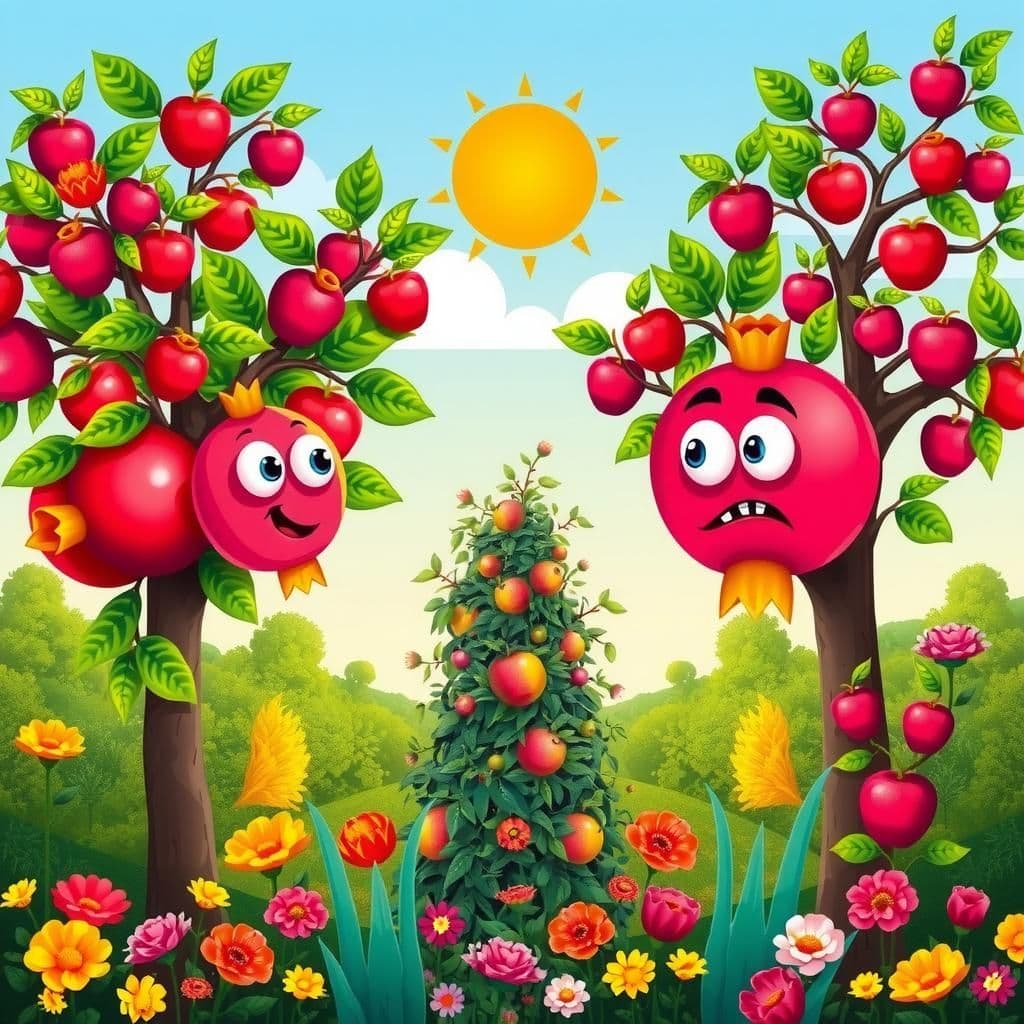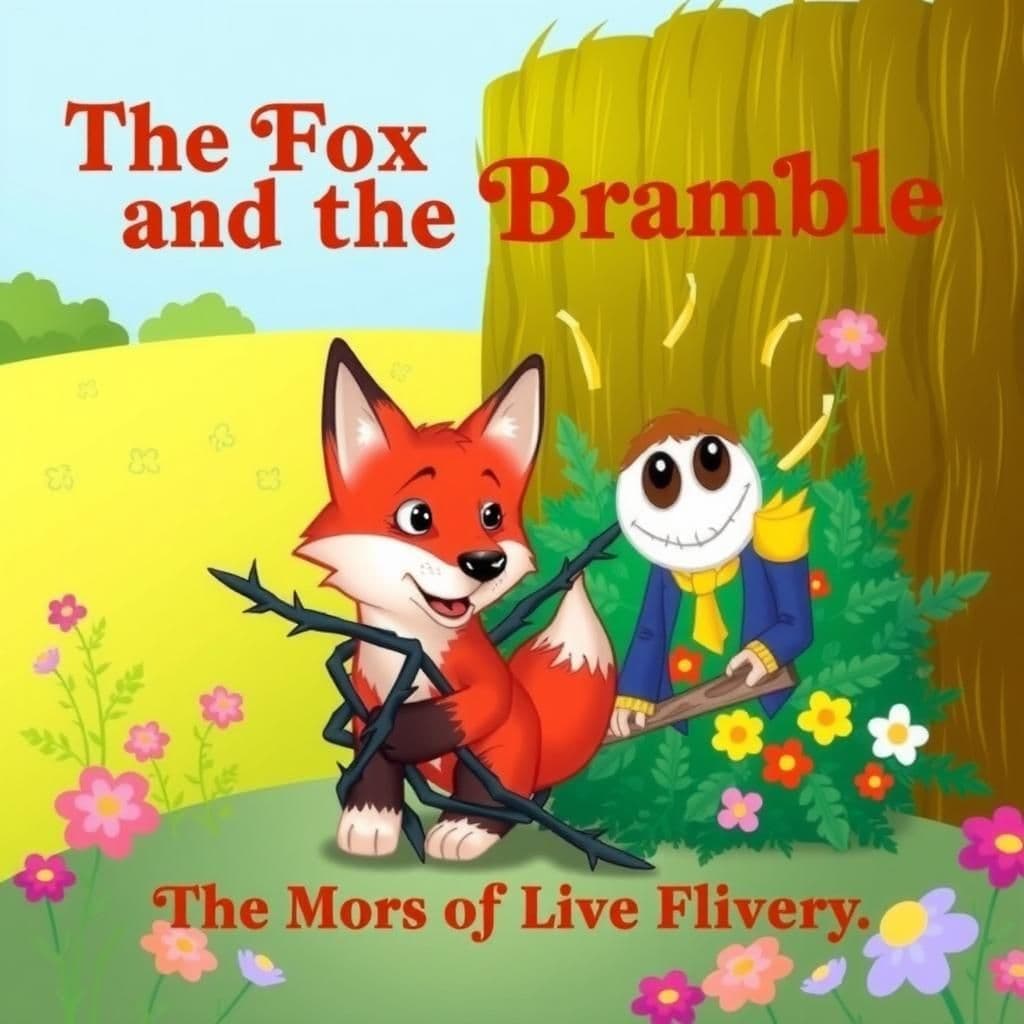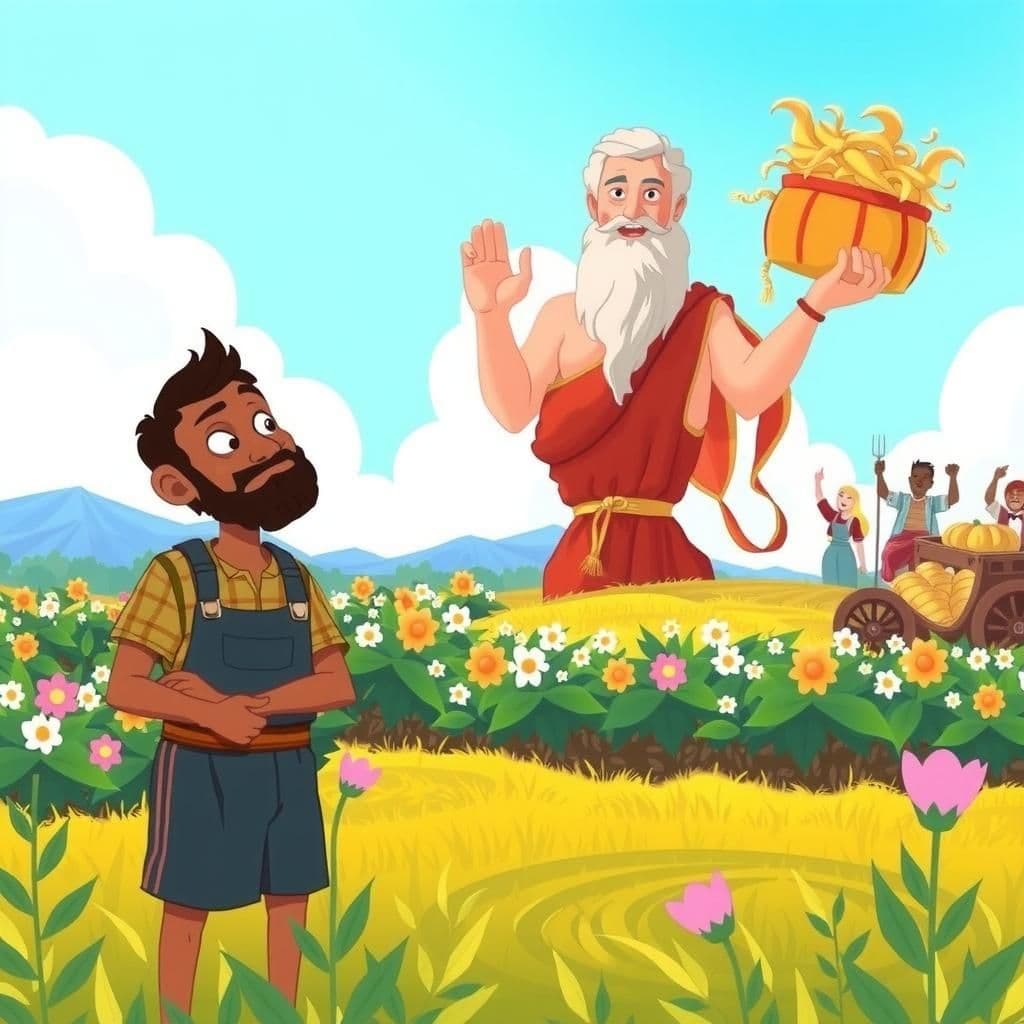The Pomegranate Apple-Tree and Bramble

Story Summary
In the culturally significant moral story "The Pomegranate Apple-Tree and Bramble," the Pomegranate and Apple-Tree engage in a vain dispute over their beauty. Their quarrel is interrupted by a boastful Bramble, who suggests they stop their argument in his presence, highlighting the folly of pride. This concise moral story serves as a life lesson, reminding readers of the importance of humility over vanity, making it a valuable addition to the top 10 moral stories for class 7.
Click to reveal the moral of the story
The moral of the story is that those who are less worthy often boast the loudest, reminding us to focus on our own qualities rather than engage in fruitless comparisons.
Historical Context
The story of "The Pomegranate and the Apple-Tree" reflects the rich tradition of fables found in ancient literature, particularly those attributed to Aesop, whose tales often feature anthropomorphized plants and animals to convey moral lessons. This particular fable underscores themes of vanity and pride, resonating with similar narratives in various cultures that emphasize the folly of competition over superficial qualities. Variations of this story can be found in different folklore traditions, illustrating the universal nature of its moral.
Our Editors Opinion
This story reminds us that often in modern life, disputes over superficial matters can lead to unnecessary conflict, while those who lack substance may seek to draw attention to themselves through boastfulness. For instance, in a workplace setting, two colleagues might argue over who contributed more to a project, distracting from the team's overall success, while a less skilled employee might try to insert themselves into the conversation, emphasizing their own worth without real contributions.
You May Also Like

The Fox and the Bramble
In "The Fox and the Bramble," a fox climbs a hedge but falls and grabs a bramble for support, only to be pricked and hurt. Accusing the bramble of being more harmful than the hedge, he learns that he should have expected pain from something that also causes it to others. This wisdom-packed moral story illustrates how selfish individuals often encounter selfishness in others, a common theme in well-known moral stories.

The Angel's Tear
In "The Angel's Tear," a classic moral story, an unworthy man who once mocked the misfortunes of the woman he loved regrets his actions while dressed in sackcloth and ashes. The Angel of Compassion, observing his plight, drops a tear that turns into a hailstone, striking him on the head and causing him to fumble with an umbrella, prompting the Angel to laugh at his misfortune. This captivating tale serves as a simple moral story about the consequences of laughing at others' suffering, making it a memorable addition to famous fables with moral lessons for kids.

Jupiter and the Sharecropper
In "Jupiter and the Sharecropper," a prideful sharecropper learns a valuable lesson about humility when he arrogantly attempts to control the weather for a prosperous harvest, only to fail while his neighbors thrive. This uplifting moral story illustrates the importance of trusting in Providence rather than one's own hubris, ultimately conveying that true success comes from acceptance and faith. Through this meaningful story with moral, readers are reminded of the lessons learned from stories that emphasize the value of humility and reliance on a higher power.
Other names for this story
"Beauty Among Trees, The Dispute of Trees, The Bramble's Wisdom, Apples vs. Pomegranates, A Tale of Trees, Harmony in the Garden, The Rivalry of Trees, The Bramble's Intervention"
Did You Know?
This fable highlights the theme of vanity and the folly of comparing oneself to others, as the Bramble, though less beautiful than both the Pomegranate and Apple-Tree, seeks to position itself above them by criticizing their dispute. It serves as a reminder that often those who criticize others may lack the qualities they condemn.
Subscribe to Daily Stories
Get a new moral story in your inbox every day.